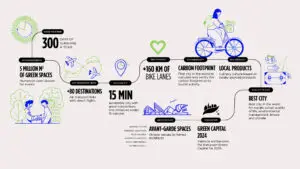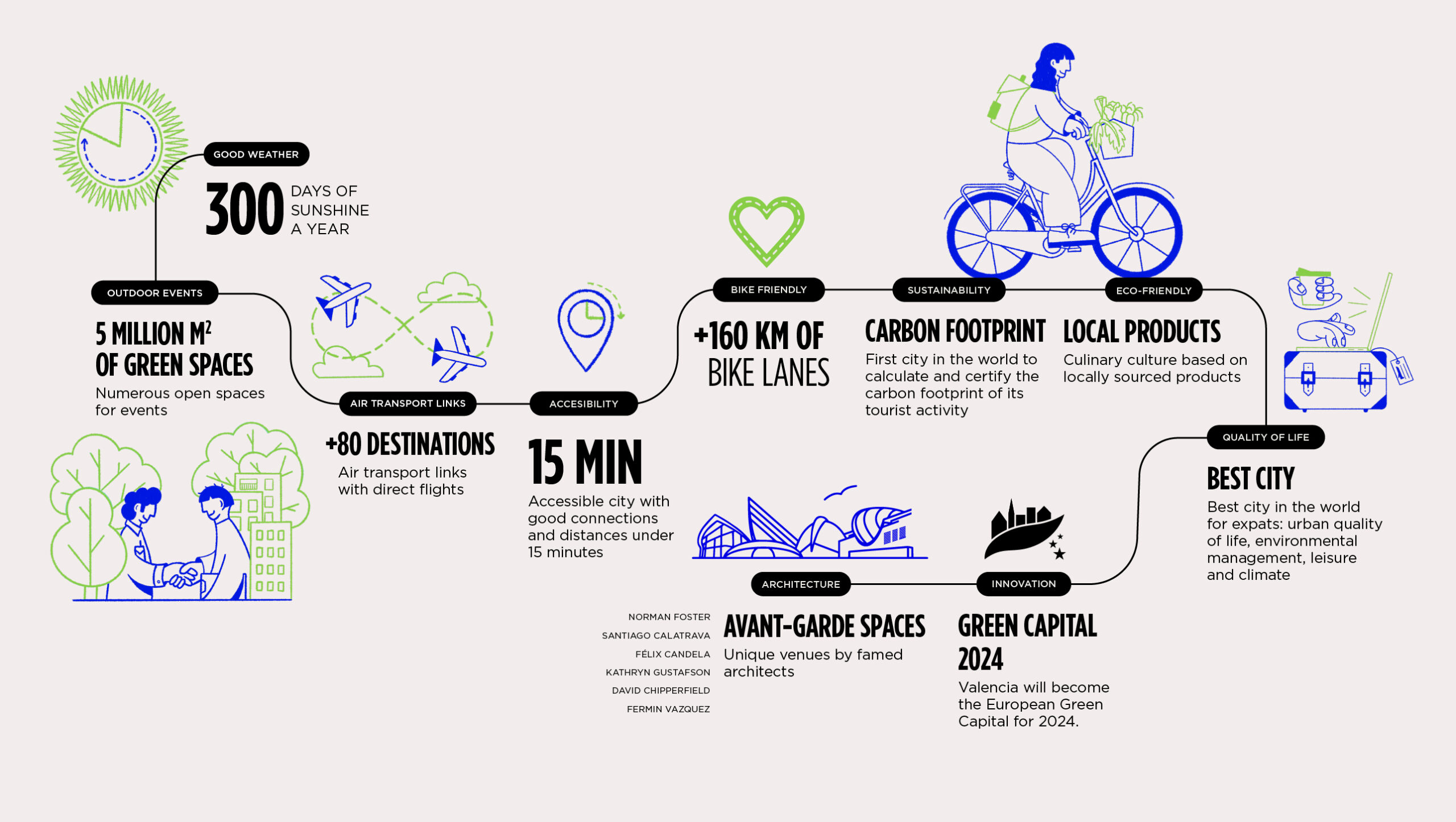The recently inaugurated 2024 promises to be a ground-breaking year for the city of Valencia. This is the year in which it becomes a benchmark for European sustainability after several years of urban development. Only 14 cities have won the European Green Capital Award before it. Valencia proudly becomes the second one in Spain (following Vitoria in 2012) and the first one in the Mediterranean.
What is the European Green Capital?
The European Green Capital Award, an initiative launched by the European Commission in 2010, recognizes municipalities with over 100,000 inhabitants that excel in environmental standards and demonstrate an unwavering commitment to environmental protection. Endowed with 600,000 euros, the award acknowledges the city’s efforts to enhance the environment and improve the quality of life for both residents and visitors. These efforts align with initiatives such as the European Green Pact, the EU’s Biodiversity Strategy 2030, and the United Nations’ Sustainable Development Goals. Beyond rewarding the winning municipality, the award seeks to inspire other cities to embark on environmental improvement and sustainable development endeavours by providing an inspiring model to follow.
Why Valencia?
The jury of the European Green Capital Award is composed of representatives of seven European institutions that take into account up to 12 environmental indicators such as climate change mitigation and adaptation, urban mobility, land use, air quality, nature and biodiversity, noise, waste and energy efficiency.
Valencia’s triumph in securing the European Green Capital 2024 Award can be attributed to various factors, including:
- Turia Garden, Europe’s Longest Urban Park: The Turia Garden, a former riverbed transformed into a green space in 1986, spans over 120 hectares and 12 kilometers. This extensive urban park has become an integral part of the city’s identity.
- Preservation and Expansion of Green Spaces: Valencia’s commitment extends to the preservation and creation of new green spaces, encompassing the Albufera Natural Park, the Huerta, parks, and gardens. The city actively works towards improving air quality and restoring natural ecosystems, such as the Devesa dune and wetland ecosystems.
- Revitalization of Public Spaces and Promotion of Cycling: Valencia prioritizes creating citizen-friendly environments by transforming streets and squares into pedestrian-friendly spaces. The city boasts over 160 km of cycle lanes and 95 km2 kilometres of pedestrian areas, encouraging sustainable modes of transportation.
- Tourism Carbon Footprint Reduction: Valencia actively promotes the audit of the carbon and water footprint of tourism activities, implementing measures to achieve carbon neutrality in the sector.

What’s next?
12 months ahead to showcase the sustainability model that has made Valencia the European Green Capital. The inaugural days on January 11 and 12 set the stage for more than 400 planned events throughout the year, including the noteworthy Cities Mission Conference 2024 organized by the European Commission. A climate conference at the highest international level that each year brings together local, national and European representatives to make further progress towards climate neutrality.
This conference will bring together the 112 Mission Cities, among others: “we will extend this invitation and commitment to other common networks, such as the European Green Cities network. At the event, which will take place in June, a decalogue of commitments will be drawn up, the Valencia 2024 Green Charter”, commented the city mayor, María José Catalá. She also announced the challenge proposed by the city council for this important year of making l’Albufera a Biosphere Reserve.
Numerous environmental challenges await us this year!
(Infographic: Visit Valencia)








